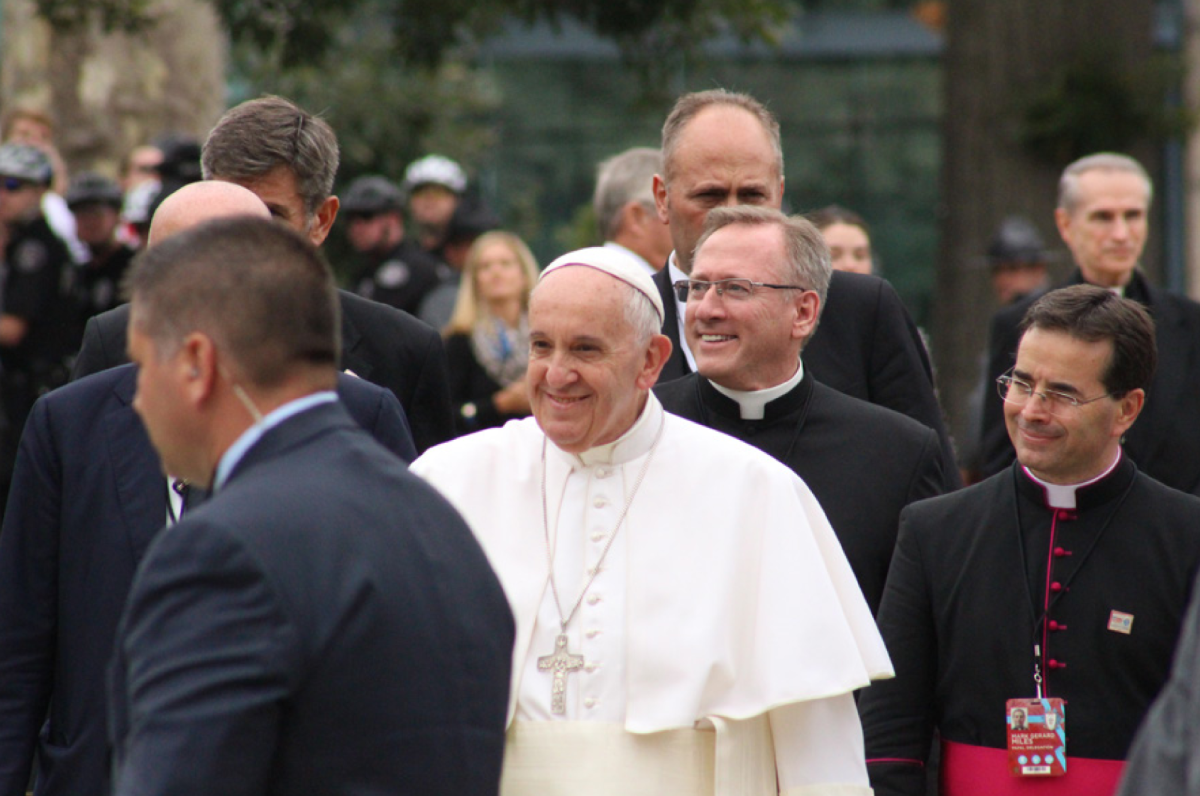Thought leaders from across the city gathered on Nov. 14 to discuss how Philadelphia can build a better future as part of Philadelphia Magazine’s ThinkFest 2019.
St. Joe’s was a sponsor of the event, along with Bank of America, SEPTA, PECO, West Chester University and The Study at University City. St. Joe’s sponsorship is part of a larger, multi-channeled brand reputation and marketing initiative with Philadelphia Magazine, according to Marie Williams, chief marketing and communications officer at St. Joe’s.
Attendees were told to imagine the year 2039 when Philadelphia might be known as America’s greatest city. “How did we get there?” they were asked.
While the speakers discussed a range of topics from climate change to cuisine, a major theme that stood out was the need to tackle inequality in the city by reducing poverty and increasing educational opportunities.
Williams said St. Joe’s plays a role in the future of Philadelphia by contributing to the economic development of both Philadelphia and Montgomery counties.
“More importantly, our graduates go out into the city’s communities and workforce,” Williams said in an email to The Hawk. “Our role is to educate future leaders who are agile, innovative and whose broad perspectives will contribute to Philadelphia’s success in a myriad of ways.”
Shaily Menon, Ph.D., dean of the College of Arts and Sciences, who attended the event, said one of her goals since coming to Philadelphia and St. Joe’s three years ago has been “putting [St. Joe’s] in the middle of the conversation about Philadelphia.”
Menon explained how educational organizations, medical organizations and religious organizations are the “anchor institutions” in any city and particularly prevalent in Philadelphia.
“We need meds, eds and religious organizations to keep a community together, to offer alternative pathways for careers and things like that,” Menon said. “St. Joe’s, as one of the important higher education institutions in Philadelphia, should be part of this conversation in improving this city.”
Philadelphia is one of the most diverse cities in the U.S., but Philadelphia’s poverty rate was 24.5% in 2018, according to the U.S. Census Bureau. That is the highest poverty rate of the 10 largest U.S. cities. Philadelphia city council member elect, Katherine Gilmore Richardson, emphasized that one of her main priorities is decreasing poverty which she associates with crime rates and lack of educational opportunities within the city.
“Philadelphia is really soaring to new heights, but we’re leaving too many people behind,” Richardson said. “Today in Philadelphia, the number one predictor of your life expectancy is the zip code where you live, and I don’t think any of us should be satisfied with that statistic.”

Christine Knapp, sustainability office director for the city of Philadelphia, spoke at the event about the tie between equity and climate change, explaining how low income communities are disproportionately hotter by as much as 22 degrees.
“The work of climate change is the work of equity,” Knapp said. “We will not be successful in becoming this climate thriving city if we don’t bring every person along in that conversation.”
Menon, citing St. Joe’s mission said she believes the university has a particular responsibility to play a role in tackling issues of inequality in the city. She also highlighted how topics such as climate change should be at the forefront of St. Joe’s efforts.
“As a university, and then as a Jesuit university, that just further underscores all of those things, social justice, equity in the city,” Menon said. “Like they said, climate change is an equity problem. It’s a social justice problem.”
Menon said in 2039 she hopes to see St. Joe’s build upon its core principles, expanding faculty expertise, hiring more leaders of color and cultivating the student passion for service, while at the same time meeting the modern needs of society. She noted that at certain moments in its history, St. Joe’s has been on the “leading edge.”
“We’re not afraid of disruption and of innovation,” Menon said. “It goes back to our founders. St. Ignatius of Loyola and the Jesuits were pioneers. They were innovators and educations. So it’s part of our DNA to do that.”









































